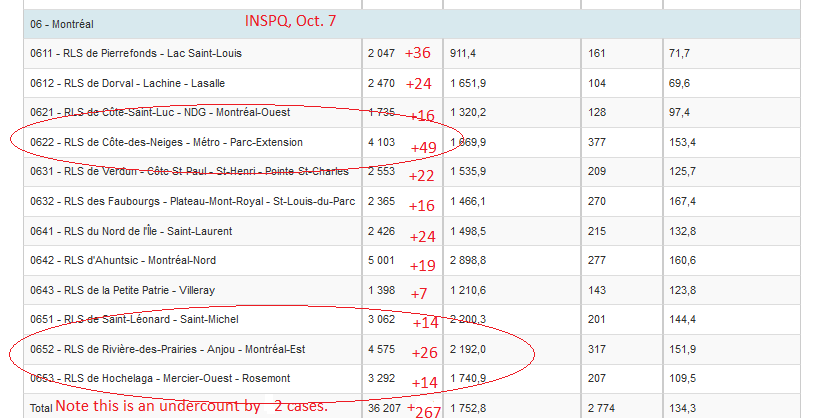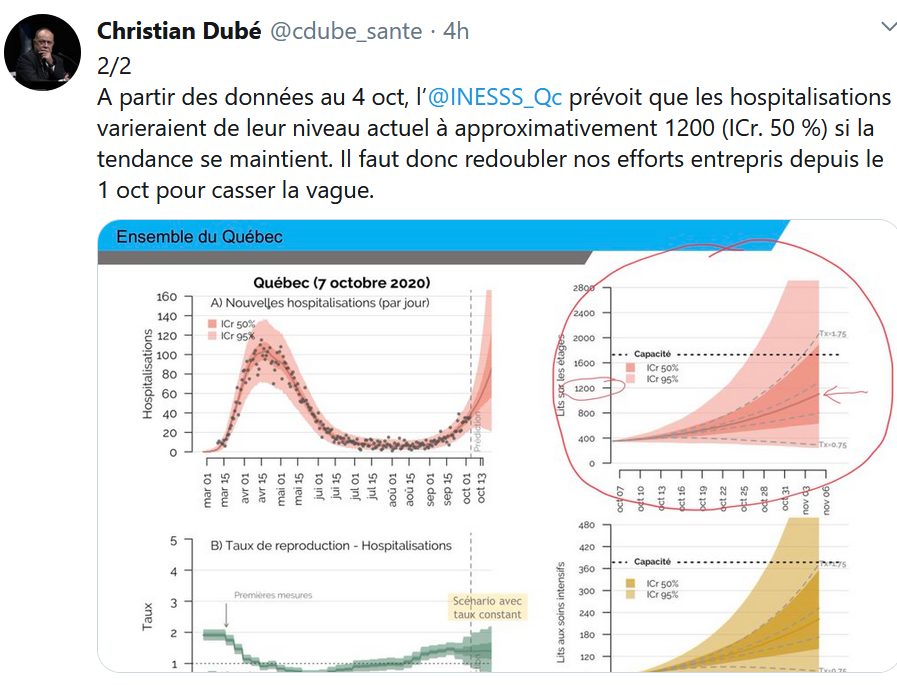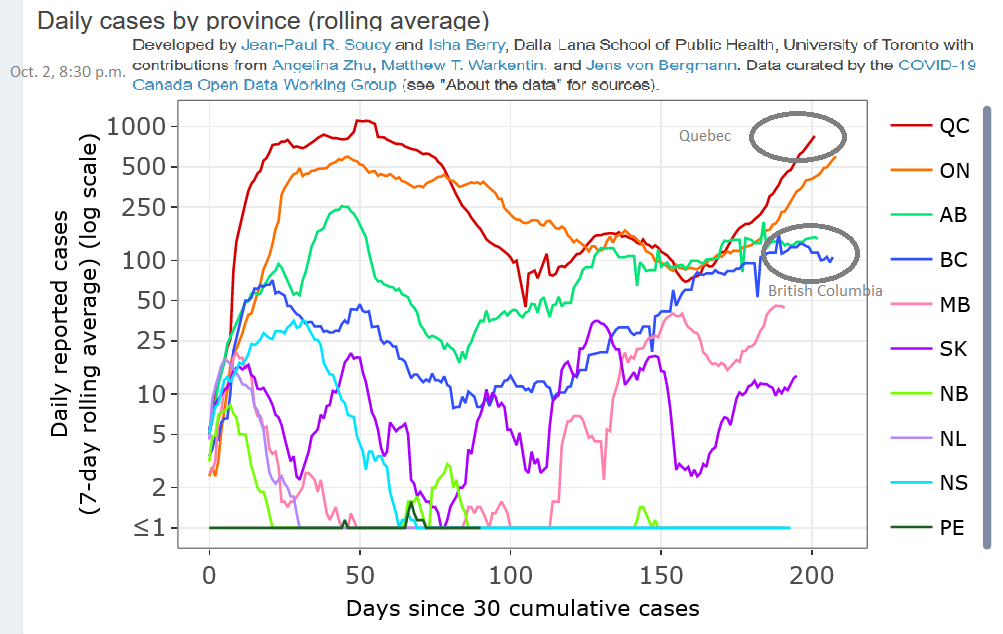
1) In the span of a week, the number of #COVID19 hospitalizations in Montreal has more than doubled — from 61 to 125 — stretching the already-thin resources of the city’s health-care system. In this thread, I will return to the subject of Montreal’s fragile hospitals.
2) Authorities have set aside 1,000 out of the city’s 5,000 hospital beds for #pandemic cases. At the rate #COVID19 is spreading, Premier François Legault calculated on Wednesday that the province could be hit with as many as 1,600 new hospitalizations within a month’s time.
3) Montreal hospital emergency rooms are again starting to admit patients with #COVID19. ER nurses at the Lakeshore General Hospital are treating up to two COVID patients per shift. The chart below by the McGill University Health Centre from shows a recent COVID spike in its ERs. 

4) And Wednesday night, Montreal’s ERs are once again overcrowded, making it much harder to separate infected patients from those who do not have #COVID19. Three other regions are observing overflowing ERs: the Laurentians, Lanaudière and the Montérégie. See the chart below. 

5) Meanwhile, the director of the Montreal public health department expressed concern about rising transmission in people over the age of 65. A major outbreak is now spreading through the Soleil Manoir Plaza seniors' residence, leading to six hospitalizations and one death.
6) The city posted 269 #COVID19 cases on Wednesday, down from 442 the day before. But Dr. Mylène Drouin attributed this to a slowdown in testing over the weekend. The city’s seven-day average stands at a worrisome 171.36 cases per million population. Please see the chart below. 

7) At the neighborhood level, the city centre continues to dominate with #COVID19 cases, as the chart below indicates. The health district of Côte-des-Neiges, Métro downtown and Parc-Extension also includes Outremont, which has observed a spike within its Hasidic community. 

8) At a news conference on Wednesday, Premier François Legault said Quebecers must be told the truth, warning that some surgeries might have to be put off if the health-care system becomes overwhelmed. But beyond that warning, does the government have a plan for the hospitals?
9) The #pandemic has resulted in direct #COVID19 deaths, but there have been indirect negative consequences, too. Thousands of Quebecers are walking around with cancer that was not detected during the #pandemic’s first wave because cancer screening was suspended.
10) During the first wave, Quebec and Ontario called for and received Canadian troops to assist in under-staffed eldercare homes. Will Quebec call upon Ottawa again for soldiers to assist this time in hospitals that are woefully lacking in nurses? End of thread. Please stay safe.
• • •
Missing some Tweet in this thread? You can try to
force a refresh




